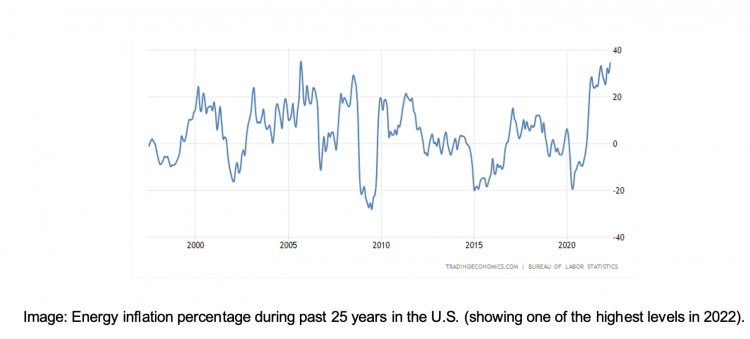West Virginia Plaintiffs Resisted Tyranny; Others Must as Well
Author: Vijay Jayaraj | Published: RealClear Markets | Date: 14 July 2022
It’s 7:00 in the morning in Cape Town. A family of four awakes to a house without power, the same as when they went to bed eight hours earlier. South Africa is in the midst of a massive energy crisis where inadvertent blackouts and intentional load shedding have become the norm.
The situation would be much worse if it were not for South Africa’s domestic coal reserves. Bloomberg reported this week that the resource has saved the country from the inflation suffered by some Europeans dependent on coal imports. “While energy prices have soared as European nations scramble to find alternatives to Russian gas supplies following its invasion of Ukraine, South Africa’s power utility Eskom Holdings SOC Ltd. has been left relatively unscathed,” the news service said.
In addition to being extraordinarily destructive, the so-called elite’s obsession with eliminating emissions of carbon dioxide is unattainable. Wind and solar are pathetically inadequate as energy sources, making up but a tiny fraction of electricity generation after decades of dumping many billions of dollars into the technologies. Fossil fuels, on the other hand, are incredibly effective.
Combustion Institute Fellow Gautham Kalghatgi reports that wind and solar — now producing just two percent of U.S. energy — would have to be increased by nearly 70 fold just to meet half of the country’s needs. “Even if it is possible, given the material and infrastructure requirements and the economic constraints, the environmental consequences will be unsustainable,” he writes.
For the poor of this world, any hope starts with the termination of restrictive energy policies implemented in the name of climate hysteria. Citizens should challenge these policies. For them, the plaintiffs in a recent case in the Supreme Court of the United States (SCOTUS) — West Virginia et. al. versus EPA — are a model for overturning destructive policies elsewhere.
The decision comes at a time when the U.S. is facing increased inflation. “Energy inflation in the United States accelerated to 34.6% in May of 2022, the most since September of 2005, due to gasoline (48.7%), fuel oil (106.7%, the largest increase on record), electricity (12%, the largest 12-month increase since August 2006), and natural gas (30.2%, the most since July 2008),” notes Trading Economics.

Image Source: https://tradingeconomics.com/united-states/energy-inflation
The energy inflation in the U.S. is a real challenge to millions of families and businesses, with no promises made by the current administration to end it. But the situation is worse in developing parts of the world, where this inflation can reverse decades-long struggles against poverty and disease.
In the past three months alone, food and energy inflation has pushed 71 million people into poverty globally. In Africa, rising electricity prices pose a threat to controlling regional inflation rates.
Vietnam, a South Asian country with a rapidly developing economy, made great strides against poverty by utilizing fossil fuels during the last two decades. Now the country’s leadership, like many across the globe, has gone “climate woke,” limiting the use of fossil fuels. Economic growth is sure to be dampened, possibly to the point of shrinking gross domestic product.
The exception to the current trend of embracing restrictive energy policies is found in countries like China and India which are trying to control energy inflation for their 2.6 billion people by increasing use of coal, oil, and natural gas.
In the SCOTUS case, leaders of West Virginia and several other states stood up to challenge an overreaching EPA bent on destroying jobs and lives to address a made-up climate crisis. While the same legal framework that enabled the plaintiffs’ success may not exist everywhere, the courage and determination to resist tyranny surely do.
Bold citizens everywhere must arise to reverse the devastating impact of climate policies. Those who successfully sued the EPA have displayed the requisite spirit.
Vijay Jayaraj is a Research Associate at the CO2 Coalition, Arlington, VA, and a Contributing Writer for the Cornwall Alliance for the Stewardship of Creation. He holds a master’s degree in environmental sciences from the University of East Anglia, UK. He resides in Bengaluru, India.

